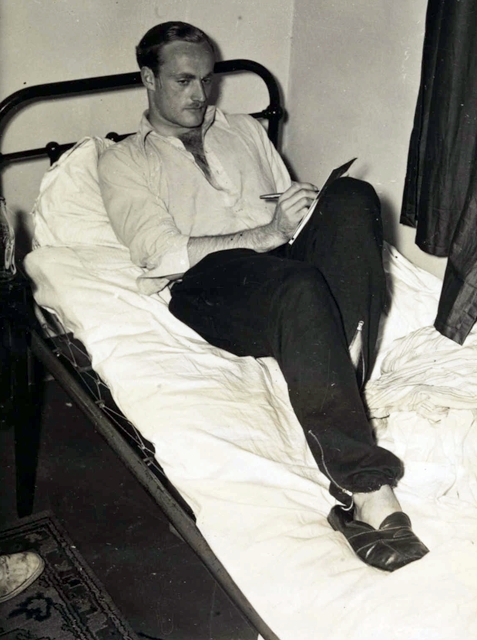
| Roles | Competed in Olympic Games |
|---|---|
| Sex | Male |
| Full name | Alastair•McCorquodale |
| Used name | Alastair•McCorquodale |
| Born | 5 December 1925 in Hillhead, Scotland (GBR) |
| Died | 27 February 2009 (aged 83 years 2 months 22 days) in Grantham, England (GBR) |
| Measurements | 183 cm / 78 kg |
| Affiliations | L.A.C., London (GBR) |
| NOC |  Great Britain Great Britain |
| Medals | OG |
| Gold | 0 |
| Silver | 1 |
| Bronze | 0 |
| Total | 1 |
The 1948 London Olympics took a retrograde step by failing to use electronic timing, similar to that used at the 1932 and 1936 Games. However, the 1948 sprint final was unique in that photo-finish equipment (albeit more akin to separating race horses rather than sprint athletes) was used for the first time and, while the times for the first four athletes came under much discussion, the photo-finish clearly showed McCorquodale just missing out on a medal in fourth place. However, his performance in finishing behind Harrison Dillard, Barney Ewell and Lloyd LaBeach, earned him the title: “The fastest white man in the world.”
McCorquodale did, however, win a silver medal as part of the British sprint relay team, but only after they initially thought they had won the gold medal after the USA team was disqualified. Two days later, however, it was ruled there was no baton-change infringement by the Americans, and they were re-instated.
In 2006 the Swiss watchmakers Omega were granted a multi-million dollar contract to become the official timekeeper for the 2010 Winter and 2012 Summer Olympics. Ironically for McCorquodale, it was Omega who timed that first Olympic sprint photo-finish in 1948.
Educated at Harrow School, McCorquodale played in the cricket and football first XIs, and played in the annual Eton-Harrow cricket match at Lord’s in the rain affected match of 1943, and again in 1944. He also played for the Public Schools XI. A fine all-round sportsman, he was also a keen rugby player, and twice won the all-round Victor Ludorum title in the sprint events at Harrow.
McCorquodale joined the Coldstream Guards in 1945, and served briefly as a lieutenant in Germany. He started running seriously when stationed in Lincolnshire in 1947, when the promise of a weekend pass if he went running for the Army appealed to him. He won the Army 100-yards Championship in 1947 in a time of 9.9s, and was fifth in the AAA 100 that year.
Because of the war, McCorquodale missed the chance to go to university. He left the Army at the beginning of 1948 and joined the London Athletic Club, where he was coached by a former fellow Harrovian Guy Butler. McCorquodale won the 1948 AAA 220 yards, and finished second in the 100, behind Australian John Treloar.
McCorquodale’s athletics career was all-too-brief, and his final race was in the sprint relay for the British Empire against the United States at the White City shortly after the London Olympics. He quit the sport to concentrate on his first love, cricket, and work in the family printing business, McCorqudale’s, who, ironically, printed the programme for the 1948 Olympics.
He played three First Class cricket matches for Middlesex, and also regularly for their Second XI. He also played for the MCC, and toured Canada with them in 1951. His cricketing career would have been longer, and probably more successful, had he not dedicated so much of his time to the family business, of which he was chairman from 1967 until his retirement in January 1986.
McCorquodale was the Nephew of First Class cricketer Guy Edwards. He was also related to authoress Barbara Cartland, as was Lady Diana Spencer, whose sister, Lady Sarah, married McCorquodale’s son Neil in 1980.
Personal Bests: 100 – 10.4 (1948); 200 – 21.8 (1948).
| Games | Discipline (Sport) / Event | NOC / Team | Pos | Medal | As | |
|---|---|---|---|---|---|---|
| 1948 Summer Olympics | Athletics |  GBR GBR |
Alastair McCorquodale | |||
| 100 metres, Men (Olympic) | 4 | |||||
| 200 metres, Men (Olympic) | 5 h2 r3/4 | |||||
| 4 × 100 metres Relay, Men (Olympic) | Great Britain | 2 | Silver |